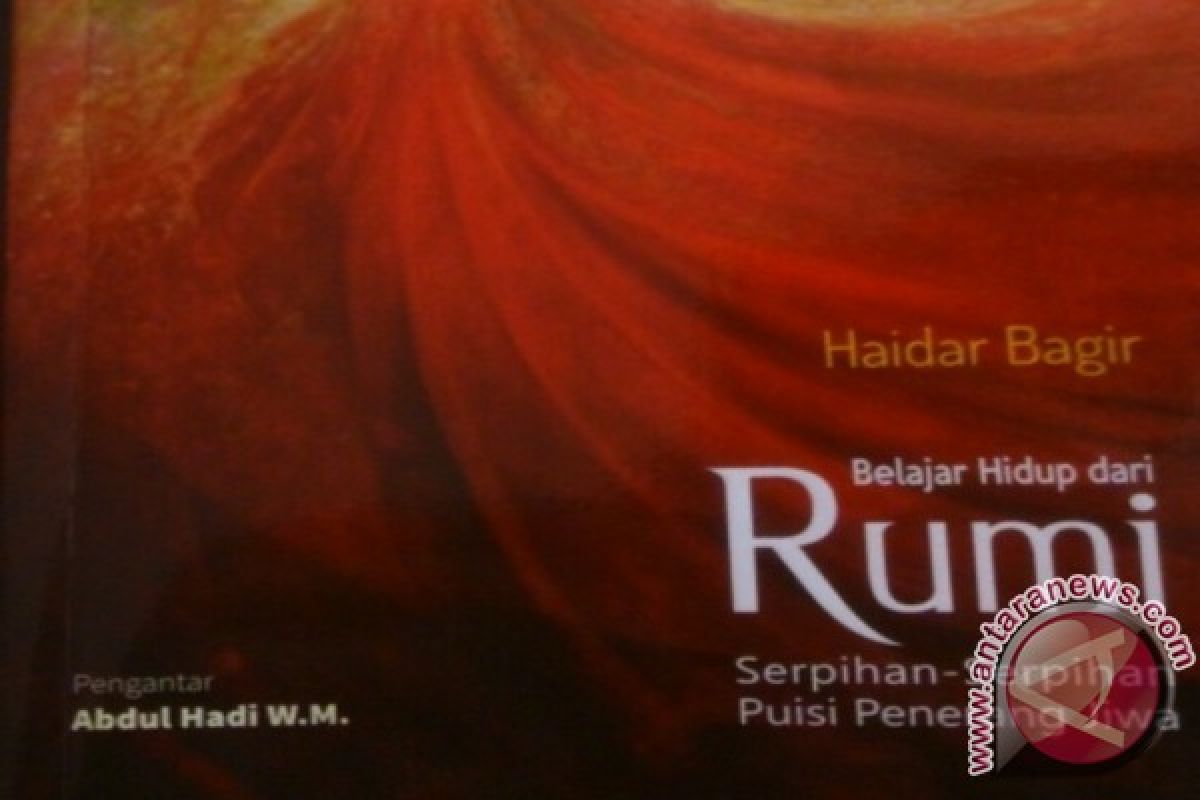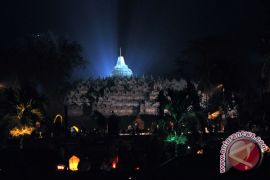Better to be a prey than a hunter.
Make yourself My fool.
...
so you may taste the savor of Life
and know the power hidden in serving.”
These lines from Whispers of Love written by Jalaluddin Rumi, an eminent Persian poet, describe love in a mystical, yet profound way.
The fact that Rumi is a Sufi figure makes the reader connect the lines even more to the relationship between God and humans. The followers of Sufism seek to attain divine love and knowledge through a direct and personal experience of God.
Whispers of Love is a 13th-century piece and is a part of Volume V of the Mathnawi, a famous collection of books by Rumi on Sufism, which were translated into English by Kabir Helminski in The Rumi Collection, published in 1998.
Born in Wakhsh (present-day Tajikistan) within the region of Balkh (present-day Afghanistan) on September 30, 1207, Rumi lived among theologians as his father, Bahaduddin Valad, was a Muslim scholar.
Thus, Rumi is considered a great poet, philosopher, and theologian, as well as Islamic scholar and Sufi leader. He emigrated to the region of Turkey — where his statue still stands in Buca — and lived there until his death in 1273.
His influence then reached beyond the borders of Turkey to surrounding countries, and later spread across the globe.
"When I first got acquainted with his poetry, I thought it was an expression of love by a person for their loved one," said Hafidz Fadli, who has read Rumi's works. Fadli has a background in Arabic literature.
“While learning Sufi literature, I have come to realize that Rumi expressed nothing through his poetry but a divine love using profound symbolism. For me, the meaning of his poetry cannot be deciphered in one sitting,” he declared.
If he had to choose one of Rumi’s works, Fadli said he would pick another love poem titled A Moment of Happiness, which "describes how Rumi is heartily in love with God, as God also pours love into every single being”.
A moment of happiness,
you and I sitting on the verandah,
apparently two, but one in soul, you and I.
We feel the flowing water of life here,
you and I, with the garden’s beauty
and the birds singing.
The stars will be watching us,
and we will show them
what it is to be a thin crescent moon.
You and I unselfed, will be together,
indifferent to idle speculation, you and I.
The parrots of heaven will be cracking sugar
as we laugh together, you and I.
In one form upon this earth,
and in another form in a timeless sweet land.
(Kulliyat-e Shams)
Rumi’s poetry, Fadli admitted, has infiltrated his mind and affected his life as well, especially in spiritual matters.
"In any stage of life, in any stage of the spiritual state, I simply return to God. And, that is the essential point of life, isn't it?" he stated.
Spirituality was a common theme in Asian literature in Rumi's era, when people were engrossed in religion and religious beliefs.
After Rumi, Asia has had several talented poets writing on many other subjects such as romance, life, and even, people's struggle against the political elite. When it comes to the latter, the name of Gu Cheng is well known.
The Chinese poet, essayist, and novelist was born in 1956 in Beijing. He spent his grown-up life during Mao Zedong's era of Cultural Revolution (1966 through 1976).
Gu Cheng is a prominent member of the Chinese Misty Poets, a modern literary group, whose works can be quite obscure as they were written against the prevalent regime.
A Generation has become his most famous poem and has had a huge influence on contemporary Chinese literature as it represents how the Chinese youth were trying to seek a future amid nationwide hardships of poverty and famine, caused by the government's revolution program.
The dark night gave me black eyes,
But I use them to seek the light.
"This two-lined poem is powerful enough to represent its elaborate meaning," said Nabil Ihsan, who likes to read Chinese contemporary poems. "Readers are told that the people of China in that era would strive and move forward though their sky was dark,” he said.
Talking about the influence A Generation has had in his life, he said, "I do love how this poem relates to my life, reminding me every time there is a 'dark stage’, there is always space to keep moving on as well."
Ihsan started to follow Chinese contemporary poetry after he took a Chinese literature class in college, and studying how the works mirrored the condition of China's society, in the context of history, further piqued his interest.
"Chinese contemporary poems, in general, are more bluntly written, which makes them easier to understand compared with Chinese classics," Ihsan added.
Rumi and Gu Cheng come from different eras, nations, and had different concerns. But, their work has one commonality — the ability to touch people’s hearts and lives.
Related news: Exploring beauty, romanticism through poems by Shakespeare, Allan Poe
Related news: Raw emotions, blunt words fill the world of modern poetry
Related news: Borobudur to host international poetry reading event
Editor: Yuni Arisandy Sinaga
Copyright © ANTARA 2020












